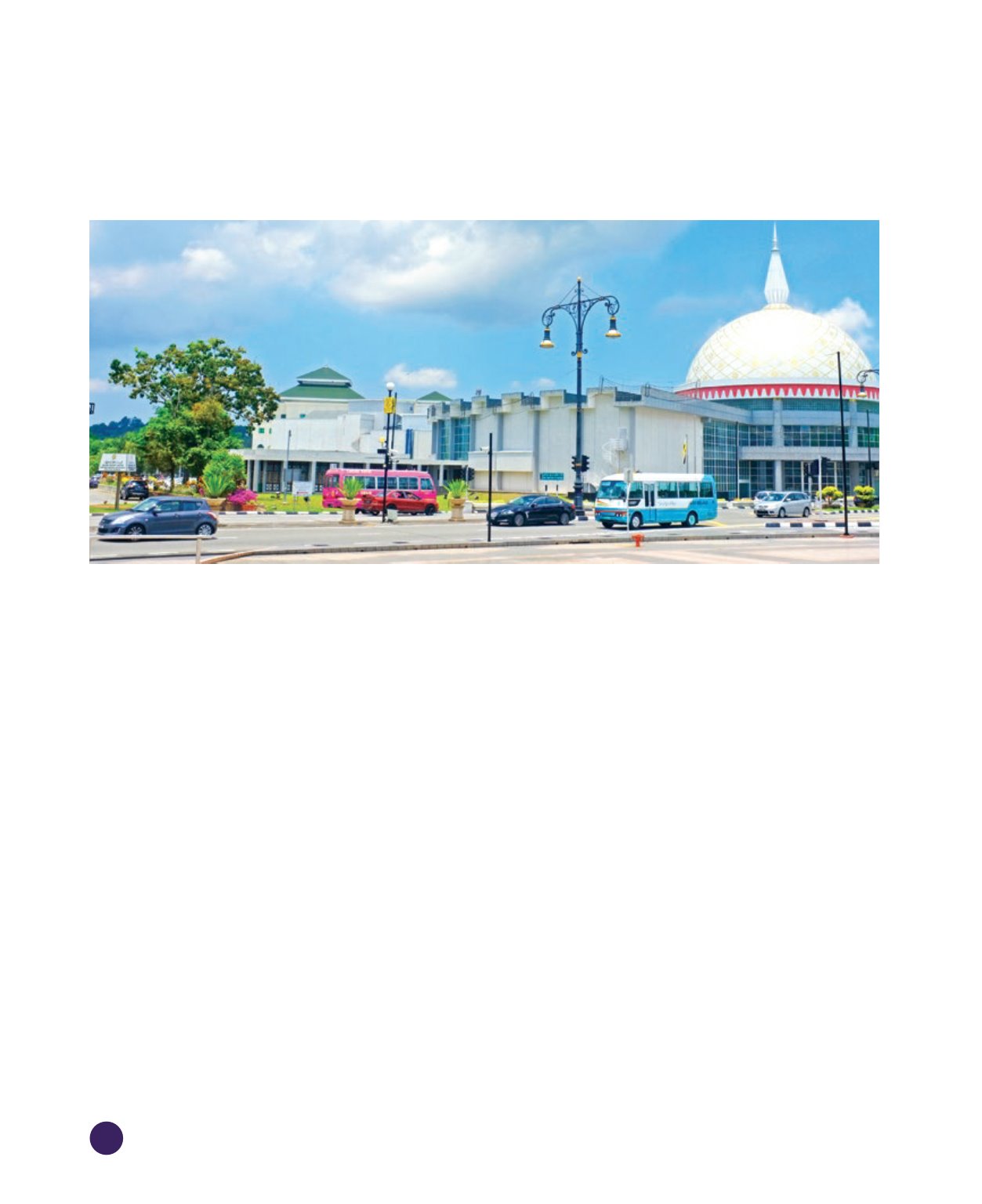

214
Borneo Bulletin Yearbook 2021
GETTING AROUND
Brunei Darussalam offers various public transport
modes for visitors and local residents, making it
easy to travel from one place to another.
Land
Public buses are available in Brunei. In the Brunei-
Muara District, six routes are run by ve private
operators with more than 100 multi-coloured
buses. There are three more routes in the Belait
District.
For travel between districts, inter-district buses
are also available linking the capital to other
towns with terminals at Seria, Lamunin and Pekan
Tutong. Buses do not operate in the hinterland
and in Temburong. Buses ply from 6.30am to
7.00pm, with fares starting at BND1.
Metered and non-metered taxis are also
available. Non-metered taxis are mostly for door-
to-door services, whereas metered taxis are
available at the airport, hotels and shopping
centres. Tourists can also use Dart, the country’s
rst ride hailing mobile application.
Alternatively, visitors may rent a vehicle. Car
rental companies are available at the airport and
major hotels in the country. Chauffeur services
are also available.
Water
Water taxis are available at various ports and
jetties along the banks of the Brunei River,
allowing passengers to explore and have a
closer view of Kampong Ayer. These taxis are
affordable and are also used by the water village
residents. Citizens also travel to Temburong
from Bandar Seri Begawan using water taxis.
Another option to tour around Kampong Ayer
is by riding on a cruise. The cruise vessel MV
Sentosa takes passengers along the scenic
route passing by the iconic Kampong Ayer,
Omar ‘Ali Saifuddien Mosque and Jong Batu.
Air
The Brunei International Airport (BIA) connects
residents and tourists from Brunei to other major
airports with top-class features to accommodate
its customers. Serving as the home base for
national carrier Royal Brunei Airlines, the
airport saw a major upgrade through its terminal
expansion and modernisation project helmed
under the Brunei Economic Development Board
(BEDB). Worth approximately BND150 million,
the project resulted in a 100 per cent increase
in the airport’s annual passenger handling
capacity from 1.5 million to three million people.
The baggage reclaim system was also improved
by 50 per cent, capable of handling up to 1,330
bags per hour.









